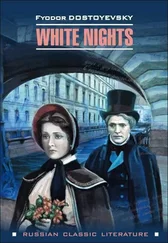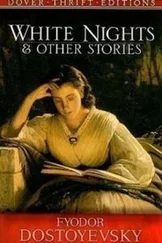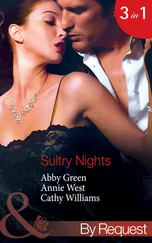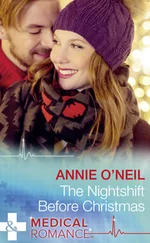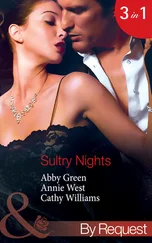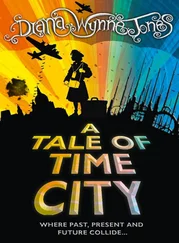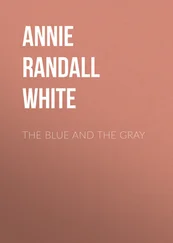“Sure,” I said. “You don’t fool me.”
Fender kissed me hard on the lips. “Discover that,” he said.
I hadn’t noticed Mother standing in the doorway. I saw her face in the crack that led into the garage from the breezeway.
I didn’t say anything then. She didn’t call me out any either.
That night there were fish sticks for dinner. Granny Olga had slept through her alarm. The sticks were cold in places from the freezer. The coil in the toaster oven was uneven again, Mother said.
I took a few bites and lay into the tartar.
“It’s not so bad,” Granny Olga said. “If you chew with your mouth open. A little air cuts the smell.”
We all laughed.
Mother was in her element. Meals never interested her much anyway. She only had a tongue for snacks and sweets. She was talking about all the things Father would never guess.
“Who would’ve guessed,” she was saying. “Our Jean.” She was talking about what she’d seen of Fender and I where she’d spied us through the crack in the door. Suddenly the room went silent and my ears stopped hearing.
“Which one?” Father said looking at me. A small fright was developing somewhere just behind his pupils.
“Jean’s little friend,” Granny Olga said. “The one with the hair.”
I could tell in that moment, in the way Granny Olga pursed her lips and Father held his tongue, that this was the last of Fender I would see as I had known him, that little gutless winged boy sitting Indian in our garage as though he were about to take flight.
“You mean,” Father said. “One of those orphans Ray’s got working his stand.”
“Yes,” I said. “That’s the one.”
I met his eyes without blinking. His little girl was a stranger to him for the first time. I could tell it pained him.
The following day, the phone rang. Mother answered it and called Father to the kitchen. I saw the receiver where she placed it on the telephone book under the phone and Father’s big hand a few seconds later as he reached for it, held it to his ear and then returned it to its cradle. Afterward, someone started pranking us in the night, calling and hanging up. I blamed it on the brothers.
“Heavy breathing,” Father said. “All they do is call up and pant.”
“A bunch of itinerants,” Granny Olga said. “What do you expect?”
For a while Fender hung out some mornings on the road in front of our house where I used to meet him. Mother said he was mocking her authority. She went out in the yard and threatened him with the police. “It’s a free country,” Fender said. “You don’t own this road.”
Birdie and I were only allowed out in the backyard. No one ever said why. No one ever said anything about Mother’s absence either, or Callie or K, or no one having been at our watch all that time.
I assumed Fender stopped trying to visit about the time the phone calls stopped coming. I knew he’d broken free of me. Father had taken a ride up to their house and seen to it. “Enough is enough,” he’d said during dinner one evening after getting up for the third time during our meal. “I can’t live in a house where the phone is constantly off its cradle.” I watched his Bronco disappear up the trailhead to the Steelheads’ house. When Father came back he smoked a cigar in the living room. Mother usually didn’t allow this. Father was always burning holes in his shirts. I sat on the bottom stair outside the living room and listened.
“I got up there,” Father said. “And I thought I was hallucinating.
I took one look at that kid and I was back at Blue Creek with my old friend Chuck Dool. The one who offed himself after the war. The kid had the same face on him. Those same wide open eyes.”
“I never said he was a bad seed,” Mother said. “She’s just too young for all that.”
“You should know,” Father said.
“Should I?” she said.
“Sure,” Father said. “You were young once too.”
Mother laughed. I could hear her as she got up off the sofa and walked over to where Father was rocking in the chair. There was a silence as she moved into his arms. Then the sounds of his hands patting her thighs as the rocker squeaked under their weight.
“You know what else,” Father said. “I get up there and find the three of them cooking dinner and watching the news.”
“They had you fooled,” Mother said.
“Spitting image,” Father said. “How’s a man to stare down his childhood friend who offed himself after the war?”
“What’s the chances,” Mother said.
“It’s a shame too,” Father said. “I never was a man to advise another man’s boys.”
Perhaps Otto Hauser was not so oblivious to the sound of the keys or the quality of the light that day as Mother and I crowded around his kitchen and Birdie picked at his fish. At the sound of the keys in the front door, Mother looked across the table at Otto for some recognition in his face. His fingers fumbled absently with his tiepin, which he kept attached to his shirt pocket. “Mother of pearl,” I could hear Mother thinking. “A bit feminine for a man his age.”
“I’m home,” Callie called into the kitchen.
It’s hard to say, whether or not Otto had planned Callie’s interruption. Maybe Callie had a sixth sense about conflict. Mother said she’d known women like her who had.
“You’re just in time,” Otto said. “Get in here and join us for a sandwich.”
“Too late,” Callie said. “I just fixed dinner. The boys were out hunting early this morning. They came home hungry for bacon and eggs.”
Callie had a chest full of groceries, a bag in one arm and a bridle over the other. As she walked into the living room, she stooped over the pullout, unloading her goods on the floor and taking His Helene’s face in her hands.
“You look good, Mama,” Callie said kissing the old woman on the cheek. “You’ve still got some summer in your face.”
If Callie was surprised to see us, she didn’t let on. She adjusted her breast in her bra where it had fallen out of its cup as she came into the room.
“Callie,” she said to Mother shaking her hand.
“Sure,” Mother said. “Jean’s mentioned you some.”
“Has she?” Callie said smiling faintly in my direction and shaking the hair out of her face.
She sat in the chair next to Otto. Her bangs scattered across her forehead where the wind had taken them and stuck to her temples where the sweat had gathered under her helmet. The sun was out and the ride was short. She’d ridden over on her husband’s ’cycle.
Looking at Callie unmoored a buzzing in the back of my throat. She wore all the places she’d been on her body. Bracelets of amber and turquoise. The holes where her ears had been pierced. The way she smelled of bing-cherry and almond. As she draped her jacket over the back of Otto’s chair revealing her shoulders and her small tan frame, I was reminded of the evergreen Father carried out of the house after Christmas. If you shook the trunk too hard in the house, Father said, you’d forever be finding a needle underfoot come spring.
For his part, Otto seemed less timid in front of Mother with Callie in the room.
“That’s a lovely bridal,” Mother said, motioning toward the straps of leather which hung over the back of Callie’s chair.
“Thanks, darlin’,” Callie said, fingering the free end of one of the straps. “It’s my old show bridal.”
“You brought me home quite a few ribbons in that one, Kiddo,” Otto said, resting his hand on the bend of her knee after she was seated and giving it a shake.
“Everyone falls into their luck sometime,” Callie said.
“We surely do,” Mother said smiling at Birdie and I as though we too had won her something.
Читать дальше
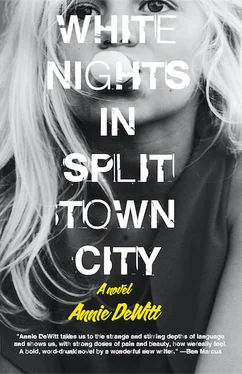
![Элизабет Ленхард - Свидание со смертью[Date With Death]](/books/79651/elizabet-lenhard-svidanie-so-smertyu-date-with-dea-thumb.webp)



